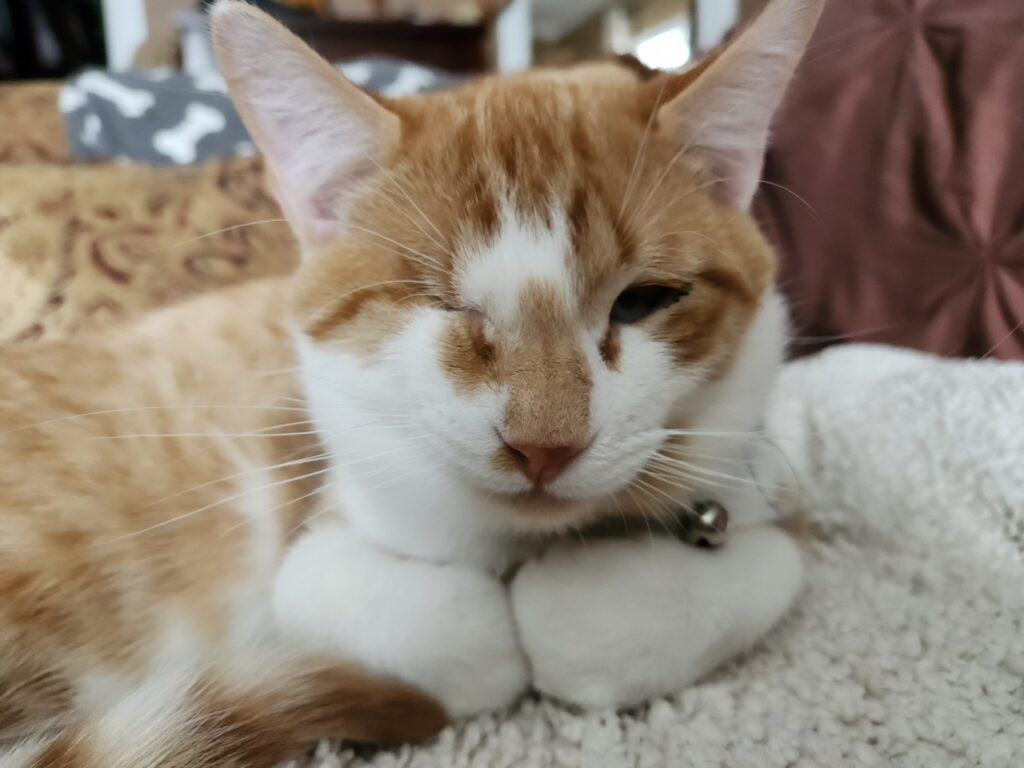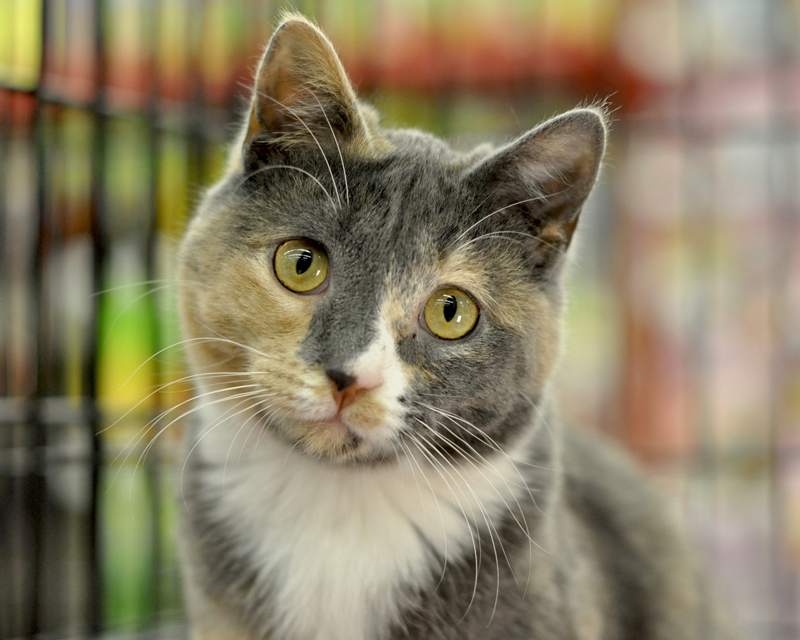Feline Herpes
Feline Herpes
Sneezing, congestion, watery eyes and nose…. It could be feline herpes, also known as feline viral rhinopneumonitis (FVR), rhinotracheitis virus and feline herpesvirus type 1 (FHV-1), and one of the most common causes of upper respiratory infections in cats. Many cats are exposed to this virus at some point in their lives.
Symptoms
- Sneezing “attacks”
- Discharge from the nose and eyes
- Conjunctivitis or pink eye (inflammation of the eyelid)
- Lesions in and around the eyes or eye ulcers
- Congestion
- Fever
- Depression
- Loss of appetite and lethargy
- Drooling
- Squinting
How Do Cats Get Herpes?
The most common way for the herpes virus to spread is through contact with discharge from an infected cat’s eyes, mouth or nose. Cats can catch this virus by sharing litter boxes, food and water dishes with an infected cat, as well as by mutual grooming. An infected pregnant cat might also pass the virus on to kittens who are still in the womb. Because the virus is highly contagious, it is common in catteries, shelters and multi-cat households.
Some cats who become infected with feline herpes are latent carriers. Even though they will never display symptoms, they can still pass the virus on to other cats. Stress can cause these carriers to “shed” the virus, exhibiting mild symptoms, which clear up on their own after a few days.
Humans and dogs are not at risk for catching feline herpes, and cats cannot catch the strains of herpes that humans carry.
Treatment
Once infected, the majority of cats do not get rid of the virus. However, symptoms can be treated. Veterinarians may prescribe oral antibiotics or antiviral medications to help ease symptoms, and drops or creams may be used for conjunctivitis or other eye irritations. With medication, good nutrition and tender loving care, most cats will make a successful recovery. A brief exam by a veterinarian will help to determine if your cat requires medication, has a fever or is dehydrated. If a cat is just sneezing, but is otherwise acting normally, no treatment will likely be needed. However, if a cat begins to show nasal discharge, loss of appetite or other symptoms, there is evidence of a secondary bacterial infection and antibiotics may be necessary. Please do not administer any medication to your cat unless you’ve discussed it with your veterinarian.
How Can I Reduce Flare-Ups?
Since the herpes virus reactivates with stress, a low- or no-stress environment is helpful in reducing flare-ups. Your cat can be put under stress by any sudden change in his-or your-daily routine, by a sudden change in environment, such as new visitors, a move or loud noises. To create a calm environment for your cat, provide him with clean bedding and access to natural light and hiding places.
How Can I Help My Infected Cat Feel Better?
- Frequently clean his eyes (discharge may dry, creating a hard, uncomfortable crust).
- A humidifier in the cat’s environment or time in a steamy bathroom can help the congestion.
- Create a calm, restful home for your cat.
- Make sure your cat is regularly eating and drinking water.
New cats that are showing symptoms should be kept isolated from healthy cats in the household. Keep all litter boxes, food and water bowls clean, and regularly wipe your cat’s eyes and nose, as blocked nasal passages could cause him to stop eating. Some cats may require supportive feeding.
Article from: WebMD Veterinary Reference from the ASPCA
© 2009-2014 ASPCA. All Rights Reserved.


